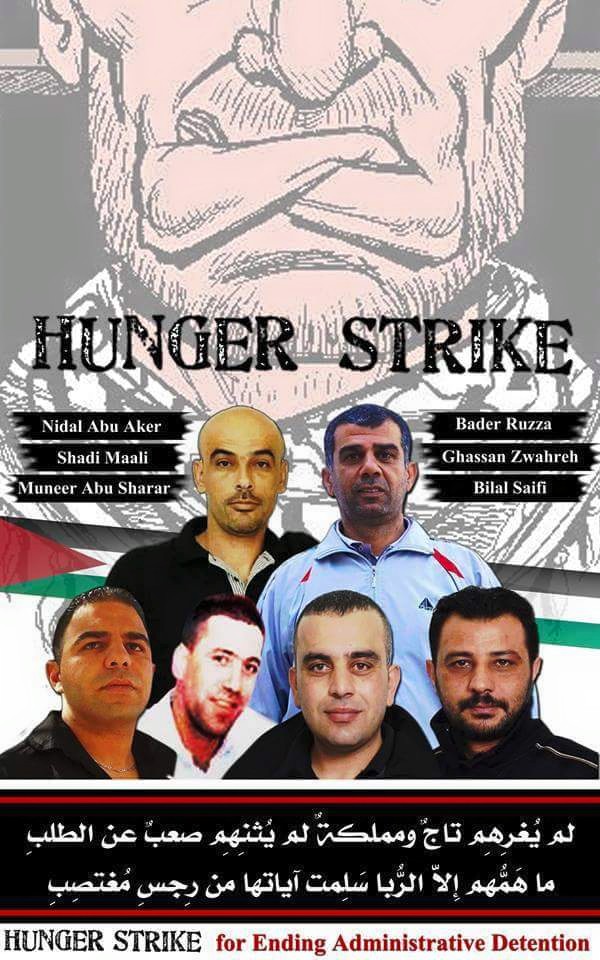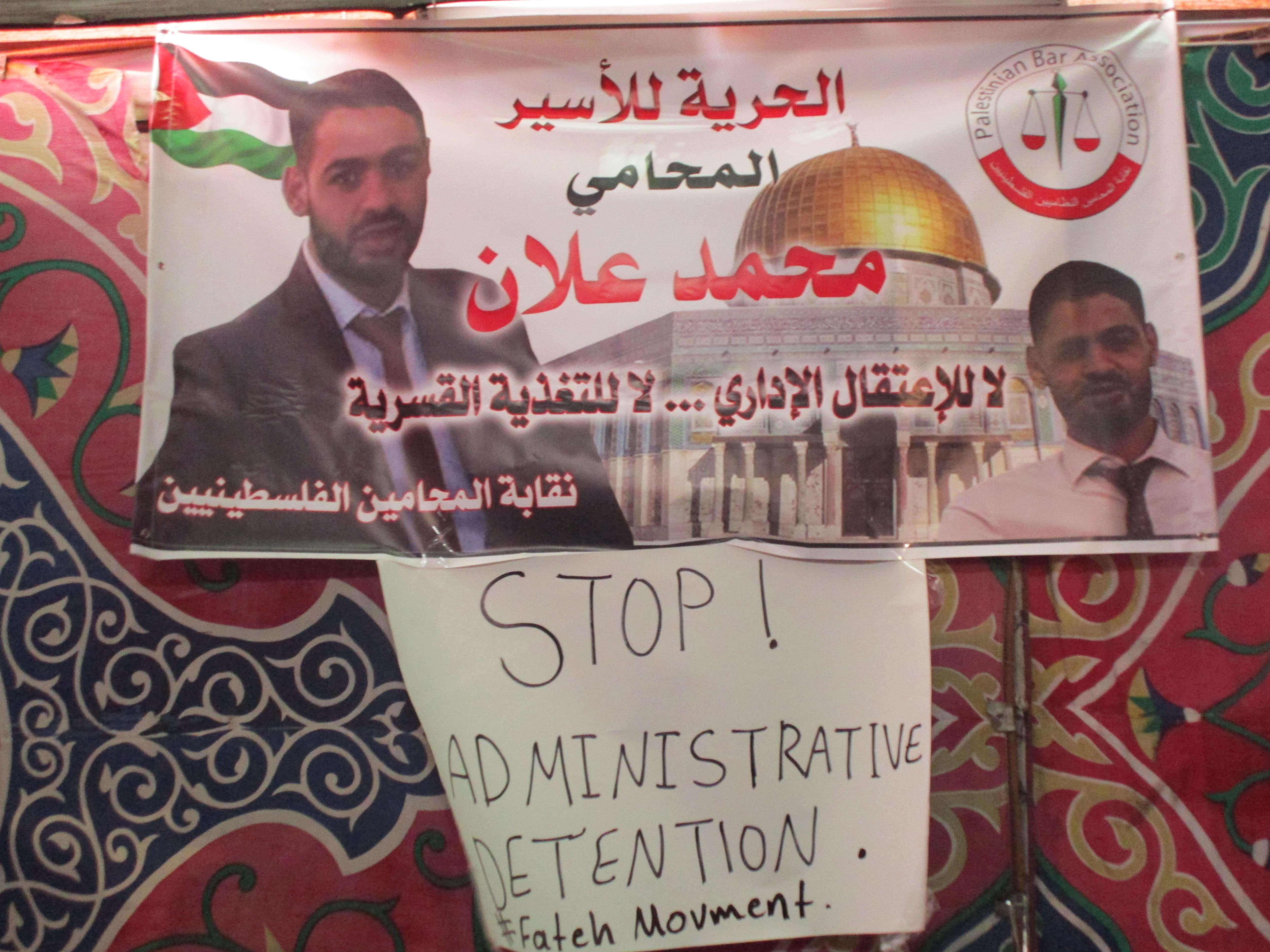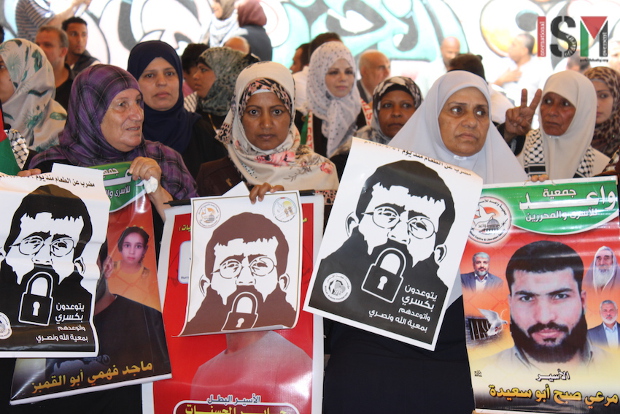Tag: Hunger strike
-
ACTION ALERT! Battle of breaking the chains: 25 days of hunger strike for Palestinian prisoners
15th September | Palestinian Prisoner Solidarity Network | Occupied Palestine Palestinian prisoners in Israeli administrative detention are continuing their hunger strike to demand an end to imprisonment without charge or trial. Nidal Abu Aker, Ghassan Zawahreh, Shadi Ma’ali, Munir Abu Sharar,Badr al-Ruzza, Bilal Daoud Saifi and Suleiman Eskafi are all isolated by the Israeli prison…
-
Palestinian lawyers went on hunger strike in solidarity with Mohammed Allan and to protest against administrative detention
20th August 2015 | International Solidarity Movement, al-Khalil Team |Hebron, Occupied Palestine Last Tuesday Palestinian lawyers went on a hunger strike. Hatem Shahin, vice-president of the Palestinian Bar Association for lawyers, explains why thirteen of the Association’s members decided to take this radical step: “The main goals are to break the isolation of the Palestinian prisoners…
-
Khader Adnan, an example for all prisoners and Palestinians
29th June 2015 | International Solidarity Movement, Gaza Team | Gaza, Occupied Palestine Today, the weekly concentration in solidarity with the Palestinian prisoners in Israeli jails focused on the last victory of Khader Adnan. Spokesmen from different factions and committees pointed to Khader Adnan as an example for all prisoners and all Palestinians for…



